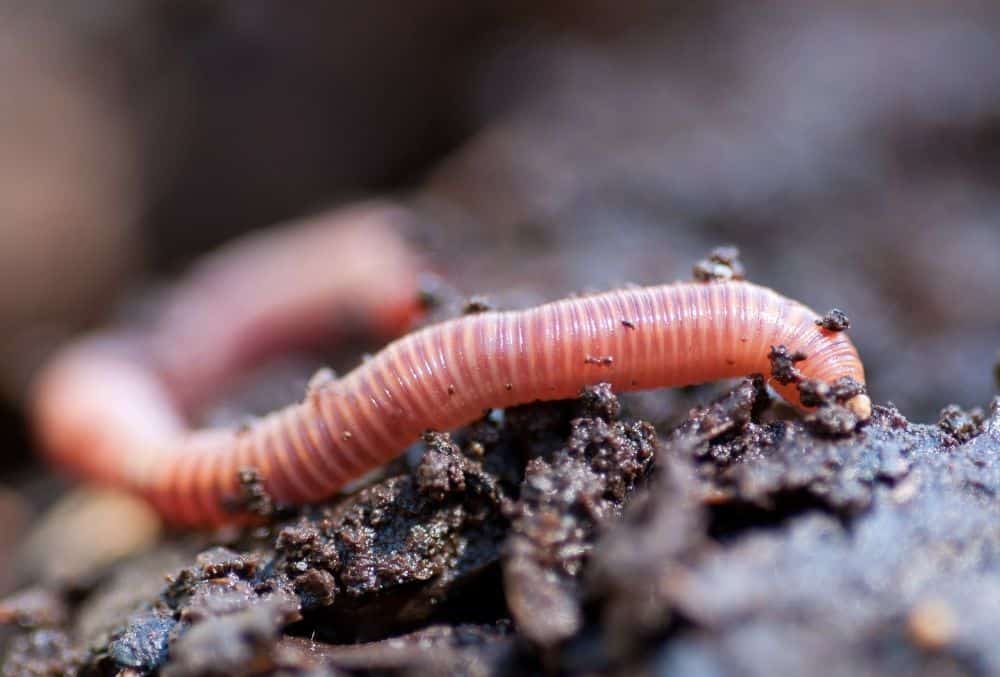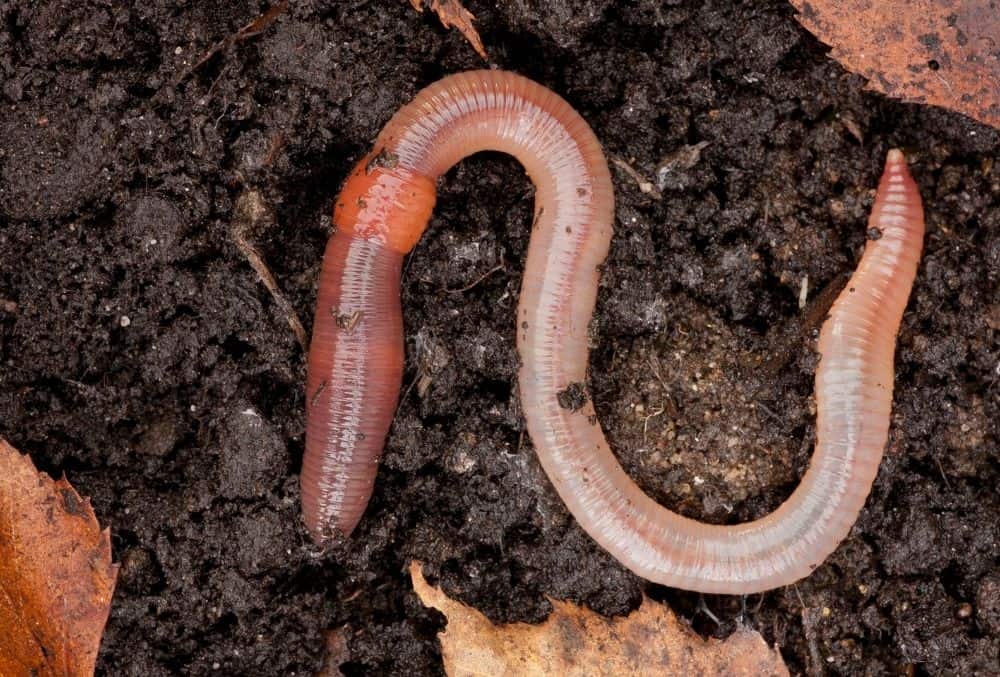Earthworms are among some of the most spine-chillingly gross terrestrial invertebrates in the world. While slimy and wriggly, earthworms play a vital role in taking care of land.
When you live a self-sufficient lifestyle of homesteading, keeping your land (and your land’s inhabitants) is your top priority.
This means that you mostly need to allow your land to contribute to the natural circle of life – the earthworms provide food for poultry like chickens, which then allows the poultry to lay excellent eggs.
During this time, the earthworms enhance the soil fertility, allowing for plants and vegetables on your land to thrive.
Thing is, while we know that earthworms are at the bottom of the food chain, people don’t often consider what earthworms eat to stay alive and keep the land healthy.
So, if you’re looking to encourage earthworms to make your land thrive even more, you might want to consider filling the soil with their favorite foods.
Here is everything you need to know about what earthworms eat!
What Do Earthworm Eat?
Earthworms are both omnivores and detritivores, meaning they will eat anything from animal to plant matter – whether dead or alive.
A detritivore is a heterotroph that obtains nutrients from decomposing animal and plant matter, which ranges from rotting plants to animal feces.

It’s gross, but it means that earthworms work as the gardeners of soil, ensuring to keep the soil as clean as possible.
When beneath the soil, earthworms will source out micro-organisms from whatever seeps downward into the soil. This includes bacteria, fungi, and algae.
They will also come to the surface of the soil to feast on dead leaves, animal feces, grass, vegetables, berries, seeds, and virtually anything they fancy munching on.
Interestingly, very few earthworm species actually feed off the soil itself.
This is mostly because the soil is their home, and the natural nutrients within the soil work to decay their food sources, rendering the soil virtually useless to eat.
What To Feed Pet Earthworms
Surprisingly, a lot of homesteaders will keep earthworms as pets in an attempt to maintain the quality of the soil all year round.
This is also the case for people who have animals who require earthworms in their diet, including poultry, birds, reptiles, and amphibians.
When keeping earthworms as pets, you’ve got to keep them on a suitable diet in the same way as owning any other pet.
Earthworms are excellent pets to have because they will eat the scraps of virtually any human food.
This means that if you don’t have a compost bin, or if you simply need some food to feed your earthworms, you can give them the scraps of fruits and vegetables.
Accidentally left some lettuce in the fridge and it’s looking mushy? Your earthworms will love you for it!
Not only this, but earthworms can also be given dairy and meat products – but only in small portions.
Earthworms don’t generally eat meat or dairy naturally, but they still benefit from the nutrients and bacteria in these foods.
However, just make sure that you don’t feed your earthworms processed foods. If they can’t eat it naturally in the wild, then it’s not safe for them to eat.
Earthworms have small mouths and small digestive systems, which means you can only feed them small portions.
These slimy invertebrates don’t exactly have a stop button for when they are full, so you want to ensure you don’t overfeed and accidentally kill the earthworms.
On average, an earthworm will eat its body weight in food daily. You’ve just got to remember to cut their food into small pieces, because this will be the easiest for them to digest. Earthworms don’t have teeth, after all!
How Do Earthworms Eat?
So, if earthworms don’t have teeth, how do they eat food?
Earthworms find and source their food through digging into the soil.

Their streamlined bodies mean that they can wiggle their way through soil, but they will also consume the soil in front of them.
Their bodies will take out any necessary nutrients within the soil, and then excrete the soil afterwards. Any food that they find on the way in the form of small micro-organisms will be digested.
This is why earthworms are some of the best fertilizers of soil!
Earthworms have a very interesting digestive system that essentially runs from their mouths straight to the anus. It’s not complicated, it’s just a tube.
Within this tube is the buccal cavity, pharynx, esophagus, intestine, gizzard, and crop. The buccal cavity is basically the mouth of the earthworm, which then leads to the pharynx.
This is where mucus works to secrete the food by the pharyngeal gland, helping to further break down the food to pass through the system.
As with humans, earthworms have an esophagus. When the food passes through the esophagus, calcium in the blood works to turn the food into the correct pH level.
The food is then ground into even smaller particles by the gizzard, which then moves to the intestine to be digested.
The intestine works to digest the food by secreting enzymes before moving the food to the anus. Then, the cycle starts all over again!
When Do Earthworms Eat?
Interestingly, earthworms are nocturnal feeders. They’re not hunters, as they don’t search for food aggressively. They just wriggle around consuming anything that comes their way.
The main reason they feed at night is mostly to avoid being captured by predators like birds and poultry, and also because they prefer to eat amongst cooler soil.
During the day, they tend to sit amongst the moist soil in their little caverns.
However, if you’ve ever wondered why earthworms come out when it rains or when the sprinkler is on, it’s because they don’t want to drown in the damp soil.
It can take days for earthworms to drown, which is why you’ll often see earthworms appear a day or two after a period of rain.
This is also why you’ll see birds and poultry pecking at the ground more often than usual when it’s raining!
